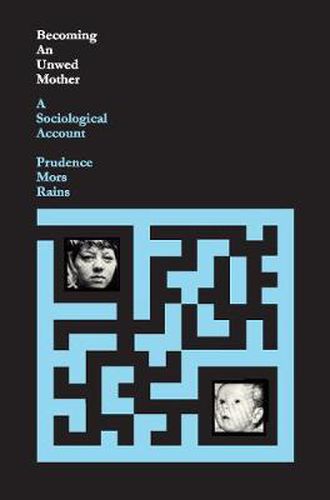Readings Newsletter
Become a Readings Member to make your shopping experience even easier.
Sign in or sign up for free!
You’re not far away from qualifying for FREE standard shipping within Australia
You’ve qualified for FREE standard shipping within Australia
The cart is loading…






Most unmarried women who engage in sexual intercourse do not become unwed mothers; they use contraceptives, secure an abortion, or get married before the baby is born. What happens to the minority of women who bear illegitimate children? This book is the first study to describe in detail the actual situation of unwed motherhood, as opposed to the causes and pathology of deviance. Based largely on observation of middle-class white girls in a psychiatrically oriented maternity home and lower-class black teenagers in a day school for unwed mothers, the study focuses on the unwed mother’s moral career as it is shaped by social agencies. The author shows how these agencies operate to reconstruct a mother’s vision of herself as a good girl, restoring her from deviance to the status of an innocent who made a mistake thereby leaving her vulnerable to a repetition of that mistake. The topic is expanded to include general questions of sociological importance. The author’s clear, jargon free prose makes the book especially attractive to social workers, clinical and school psychologists, community and public health workers, and teachers and students of the sociology of deviance.
$9.00 standard shipping within Australia
FREE standard shipping within Australia for orders over $100.00
Express & International shipping calculated at checkout
Most unmarried women who engage in sexual intercourse do not become unwed mothers; they use contraceptives, secure an abortion, or get married before the baby is born. What happens to the minority of women who bear illegitimate children? This book is the first study to describe in detail the actual situation of unwed motherhood, as opposed to the causes and pathology of deviance. Based largely on observation of middle-class white girls in a psychiatrically oriented maternity home and lower-class black teenagers in a day school for unwed mothers, the study focuses on the unwed mother’s moral career as it is shaped by social agencies. The author shows how these agencies operate to reconstruct a mother’s vision of herself as a good girl, restoring her from deviance to the status of an innocent who made a mistake thereby leaving her vulnerable to a repetition of that mistake. The topic is expanded to include general questions of sociological importance. The author’s clear, jargon free prose makes the book especially attractive to social workers, clinical and school psychologists, community and public health workers, and teachers and students of the sociology of deviance.